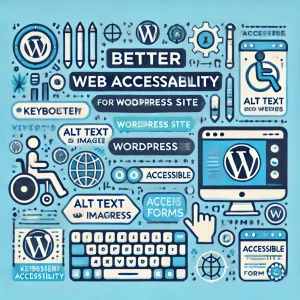
Uniformity tends to be a good thing the majority of the time, and that can be said no matter what it is we’re talking about. The biggest reason that is true is because it allows people to have expectations about what they’re to experience, and to be able to rely on that experience in and out with every interaction. When it comes to web browsing you don’t even have to be a savvy individual to pick up on how not every page displays or behave the same way based on what browser you’re using.
Now of course that would be dependent on you using a different browser, so if you use only one exclusively then this may be something you don’t pick up on. But most of us will move between them for whatever reason, and when we do we notice that it’s rare for pages to be the same based on browser choice. This is something that has been the norm for well over 20 years now, and while it’s not a deal breaker to have this happen there would be something to say for a more consistent web standard.
Here at 4GoodHosting we are like any Canadian web hosting provider who can see the appeal of that based on simple visual comfort levels. Even if we are not aware of it there is a calming and soothing part of seeing what we expect to see each time, and we can also understand that if there is any level of new exploration required because a page is displaying / behaving differently then that is definitely undesirable too.
So the reason that we’re making this newsworthy is because there is a new 4-way effort underway to establish a more consistent and better web standard.
New Standard
Apple is working with browser developers Google, Microsoft, and Mozilla to make web design technologies more consistent, and consistent that way independent of what browser people are using. The problem here is that some browsers will have different built-in ways of handling web technologies. So in this sense there isn’t a standard of any sort for the web, and we then have developers, attempting to create consistent web interfaces across platforms, products, and elsewhere when a particular browser has the potential to undo all of that.
These 4 are making up the Interop 2022 alliance and the aim – as stated – is to ascertain how web standards are implemented by the different vendors. Some of this building on what came out of the Compat 2021 grouping.
The bigger picture aim of the project is to try to make it so that web applications based on these standards work and look the same no matter the devices, platforms, or operating systems. The hope then is that eventually web developers will be able to be more confident in the end-user experiences they deliver users being experienced in they way they intend them to be.
The further focus is on moving towards a future where making these areas interoperable is entirely possible, with constant updates to the relevant web standards for them, and extensive but quickly undertaken evaluation of that effectiveness also made possible.
Tests of 15 Web Platforms
15 web platform specifications have been tested so far, along with three capabilities that have not been fully developed yet. The tests are for Cascade Layers, Color Spaces, CSS color functions, Scrolling and more. We can be sure that developers, users, and platform operators alike will all welcome improvements in this area.
Another thing that needs to be pointed out is that this new consortium is digging deeper than what you might expect would be the case to simply find general interoperability. However, browser code isn’t where they are looking for the most part and instead what Interop 2022 is focusing on is the finite details in experience and design. Part of the reason this approach is being taken is because browser developers won’t want to unlock access to core functionality for competitors, and for obvious reason.
Some are saying that this is showcasing the limitations of WebKit in iOS development. The complaint is that developers of other browsers have no choice but to use WebKit rather than their own tech. IT’s fair to assume Apple will not approve this request. Sure, it may point out Safari’s limitations but it also could diminish hardware performance, security, and battery life.
Collective Criticisms
The goal of making the web as interoperable as it can be is an admirable one, and creating this reality shouldn’t take aways from any of these 4 big players with regards to their primary development interests as competitors among each other. There are some saying Apple hasn’t accelerated implementation of some web APIs that might help developers create web apps to compete against native iOS apps. This is very likely true, but we can almost certainly say the same about Google at the very least.
All in all, this is a commendable and very potentially beneficial step. A more uniform web standard stands to be a plus for all of us, from developers right down to everyday web browsers and simple site visitors.














